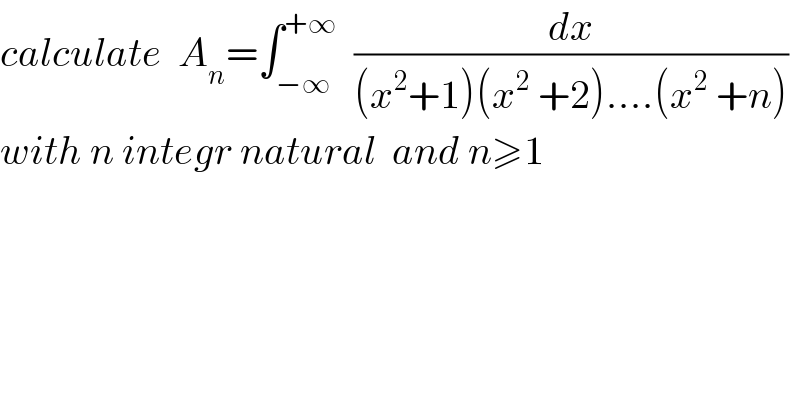
Question and Answers Forum
Question Number 64166 by mathmax by abdo last updated on 14/Jul/19

Answered by Eminem last updated on 14/Jul/19
![f(z)=(dz/((z^2 +1)......(z^2 +n))) A_n =2iπRe(zk=i(√k),k∈[1..n]) res(f.i(√k))=(1/(2i(√k)Π_(j=1) ^(n,k≠j) (1−j)))=((1−k)/(2i(√k)(−1)^n (n−1)!)) A_n =2iπΣ_(k=2) ^n (((1−k))/(2i(√(k ))(n−1)!))+((2iπ)/(2i(−1)^n (n−1)!))](Q64171.png)
| ||
Question and Answers Forum | ||
Question Number 64166 by mathmax by abdo last updated on 14/Jul/19 | ||
 | ||
Answered by Eminem last updated on 14/Jul/19 | ||
![f(z)=(dz/((z^2 +1)......(z^2 +n))) A_n =2iπRe(zk=i(√k),k∈[1..n]) res(f.i(√k))=(1/(2i(√k)Π_(j=1) ^(n,k≠j) (1−j)))=((1−k)/(2i(√k)(−1)^n (n−1)!)) A_n =2iπΣ_(k=2) ^n (((1−k))/(2i(√(k ))(n−1)!))+((2iπ)/(2i(−1)^n (n−1)!))](Q64171.png) | ||
| ||